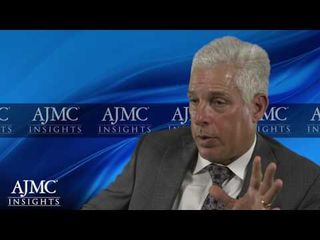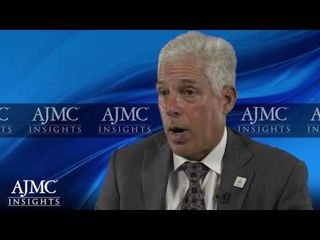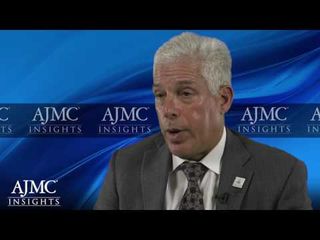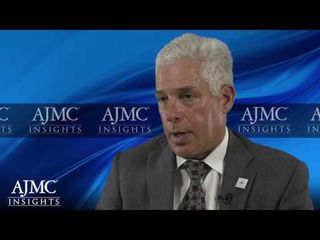
Oncology
Latest News
Latest Videos

More News

Is there anything like an ideal patient portal that can cater to a broad range of patients? According to Rebekkah Schear, MIA, what patient portals lack is a holistic approach toward the patient.

How can we create more standardized health information platforms that can easily exchange patient information?

Cancer is a complex disease to treat an patients can be overwhelmed by the number of care providers that they have to consult with. In this scenario, care navigators can provide significant support to patients and their family members.

Panelists discuss the need for documenting a treatment plan early in patient care.

Joseph Alvarnas, MD, editor-in-chief of Evidence-Based-OncologyTM spoke with Rebekkah Schear, MIA, and Michael Kolodziej, MD, to discuss the progress and challenges in oncology care.
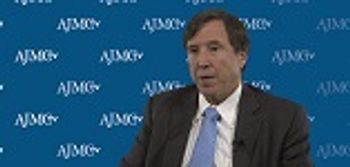
Oncologists are aware of the various value frameworks that have popped up recently, but they are still in the first phase and many oncologists have issues with the frameworks, said Andrew L. Pecora, MD, FACP, CPE, chief innovation officer professor and vice president of cancer services at the John Theurer Cancer Center.

A new study suggests that a Web-based intervention could improve a cancer survivor’s cognitive function post treatment.

CVS Health has reversed its decision on physician dispensing of specialty drugs, originally meant to be implemented by January 1, 2017.

A small, early-stage study in patients with Hodgkin lymphoma who had failed multiple treatments or relapsed after stem cell transplant indicates that pembrolizumab could be a favorable treatment option in these patients.

A perspective piece, published by researchers from Rutgers University, laments the lack of interest shown by researchers in a clinical trial data-sharing project launched in January 2014.

An animal study conducted at the Perelman School of Medicine, University of Pennsylvania, has identified a mechanism to strengthen the immune response of T cells in cancer patients who are treated with checkpoint inhibitors.

This week, the top stories in managed care included an announcement that premiums on Obamacare plans are set to increase by 25% on average, a discussion of Medicare Advantage growth at America's Health Insurance Plans' National Conference on Medicare, and recommendations for success with the Oncology Care Model.

Patient-Centered Oncology Care offers attendees the opportunity to meet and interact with high-level people from various segments of the healthcare industry, explained Scott Gottlieb, MD, resident fellow at the American Enterprise Institute.

Long-term follow-up of women who underwent mastectomy and breast reconstruction subsequent to a breast cancer diagnosis found that the success of the procedure and associated complications were not influenced by the woman’s age.

At the Payer Exchange Summit V, sponsored by the Community Oncology Alliance, oncologists and payers came together to discuss the role of collaboration and data sharing for the successful implementation of the Oncology Care Model.

At the Payer Exchange Summit V, sponsored by the Community Oncology Alliance (COA), 2 employer groups and a provider participated on a panel to provide practical insight into the extraordinary challenges and decisions faced by employers and employees with a cancer diagnosis.

When transitioning towards value-based oncology, large employers should look to value-based models that have worked for other conditions, said Karen van Caulil, PhD, president and CEO of the Florida Health Care Coalition. These successful payment models include patient-centered medical homes, bundled payments, and accountable care organizations.

Many oncology practices are still trying to understand the new Oncology Care Model (OCM) structure and focus on data reporting as they simultaneously prepare to adapt to the Merit-based Incentive Payment System (MIPS), said Barry Russo, CEO of The Center for Cancer & Blood Disorders.

Patients newly diagnosed with non—small cell lung cancer (NSCLC) that expresses the programmed death ligand-1 (PD-L1) protein now have a new treatment option: pembrolizumab (Keytruda).

What are some of the challenges that clinical practices will face as they implement the Medicare Oncology Care Model (OCM)? What are some of the strategies that have worked for practices using similar payment models? These were some of the questions discussed at the Payer Exchange Summit V.

At the Payer Exchange Summit V, sponsored by the Community Oncology Alliance, held October 24-25, 2016, in Tyson’s Corner, Virginia, Bruce Gould, MD, presented an overview of how cancer care has improved over the years, what the challenges are, and how practices can adapt to payment reform.

Employers face tough decisions about rising costs, high-quality care, coordination of benefits, and workplace accommodations when employees are diagnosed with cancer, but they will always want to support those employees as best they can, according to Marianne Fazen, PhD, president and CEO of the Texas Business Group on Health.

Adopting the Oncology Care Model (OCM) is a challenging task for oncology practices that have to redesign their practices, but the shift from volume-based to value-based care is the way of the future, said Kashyap Patel, MD, of the Carolina Blood & Cancer Center.

Including a real-time decision support tool in the prior authorization process significantly reduced the cost of therapy for UnitedHealthcare, while complying with nationally accepted guidelines established by the National Comprehensive Cancer Network.

Analysis by researchers from the American Cancer Society has found that US southern states rank at the top when it comes to death from cigarette smoking.


